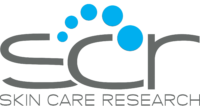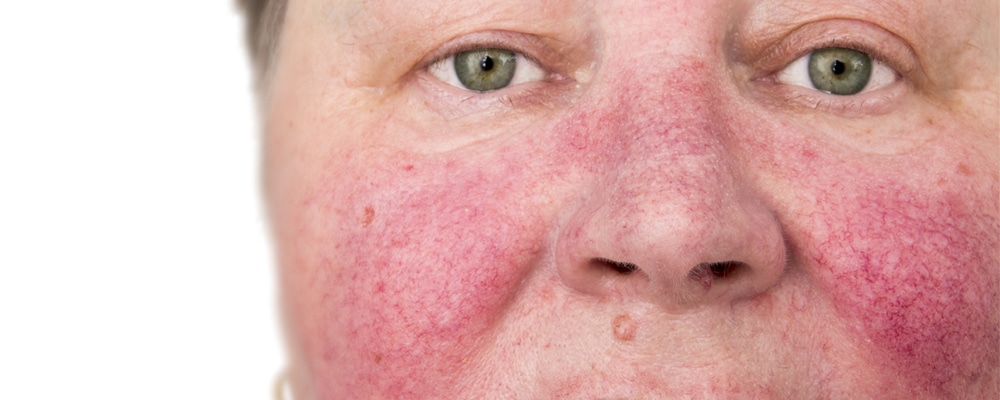More than 14 million people in the U.S. have rosacea and struggle with the symptoms of this chronic skin disease. If you have it, you may wonder if it’s caused by genetics or other issues and how to treat it.
What is rosacea?
Rosacea is a long-lasting but treatable skin disease that affects the forehead, nose, cheeks, and chin. It’s classified in four different types, each of which has somewhat different symptoms:
- Erythematotelangiectatic rosacea – skin redness, warmth, visible blood vessels
- Papulopustular rosacea – skin redness, swelling, pustules (pus-filled bumps that can look like acne)
- Phymatous rosacea -thickened, bumpy skin and an enlarged, bulbous-looking nose
- Ocular rosacea – eyes that are dry, red, and irritated, swollen eyelids, may have what looks like a sty, possible vision issues
What causes it?
Researchers believe that rosacea is caused by both genetic and environmental factors, with each type contributing equally to the disease.
The following are some of the specific causes of rosacea:
- Your genes – If you have family members who have rosacea, you’re more likely to have it also.
- Blood vessel abnormalities – Your blood vessels may dilate (expand) too easily, causing your skin to get red and flushed. Sun damage can cause them to become wider and more visible.
- Abnormal inflammation – This interferes with your skin’s ability to act as a protective barrier for your body.
- Mites – One type of these tiny insects normally lives on the skin, but some people have more of them than usual. This can irritate the skin.
- Bacteria – H. pylori bacteria live in your gut, and they may cause increased levels of a digestive hormone that makes your skin looked flushed.
Although the following don’t cause rosacea, they can increase your risk of getting it:
- Gender – Women are more likely to get rosacea, but men are more likely to have severe rosacea.
- Age – People with rosacea are often between the ages of 30 and 50.
- Smoking
- Acne
- Coloring – Light skin, blonde hair, blue eyes
How is rosacea treated?
Rosacea can be treated in one or more of the following ways:
Medications that reduce redness – including brimonidine gel and oxymetazoline hydrochloride cream. They temporarily constrict blood vessels and work for about 12 hours. Azelaic acid and metronidazole can also be used to reduce redness and pimples, but they take several weeks to work.
Oral antibiotics – such as doxycycline
Isotretinoin – This oral acne medication may be used when other treatments are ineffective, but it shouldn’t be used during pregnancy.
Other treatments – Lasers or light-based treatment can clear redness, with the effects sometimes lasting for years.
Avoiding flareups:
- Sun protection – Sunlight is the main cause of flare-ups, so it’s important to use a broad-spectrum sunscreen with a minimum SPF of 30 every day and avoid the midday sun.
- Reduce stress – A support group and activity like tai chi can help.
- Avoiding overheating – Take warm rather than hot baths or showers and avoid hot beverages.
- Use mild skin cleansers – Don’t use astringents or toners and use your fingertips to apply a mild cleanser when you wash your face.
If you have symptoms of rosacea, contact www.SkinCareResearchBoca.com or 561-948-3116 today. Our clinical research center has more than 25 years of experience executing clinical trials focusing on all types of dermatological conditions.

